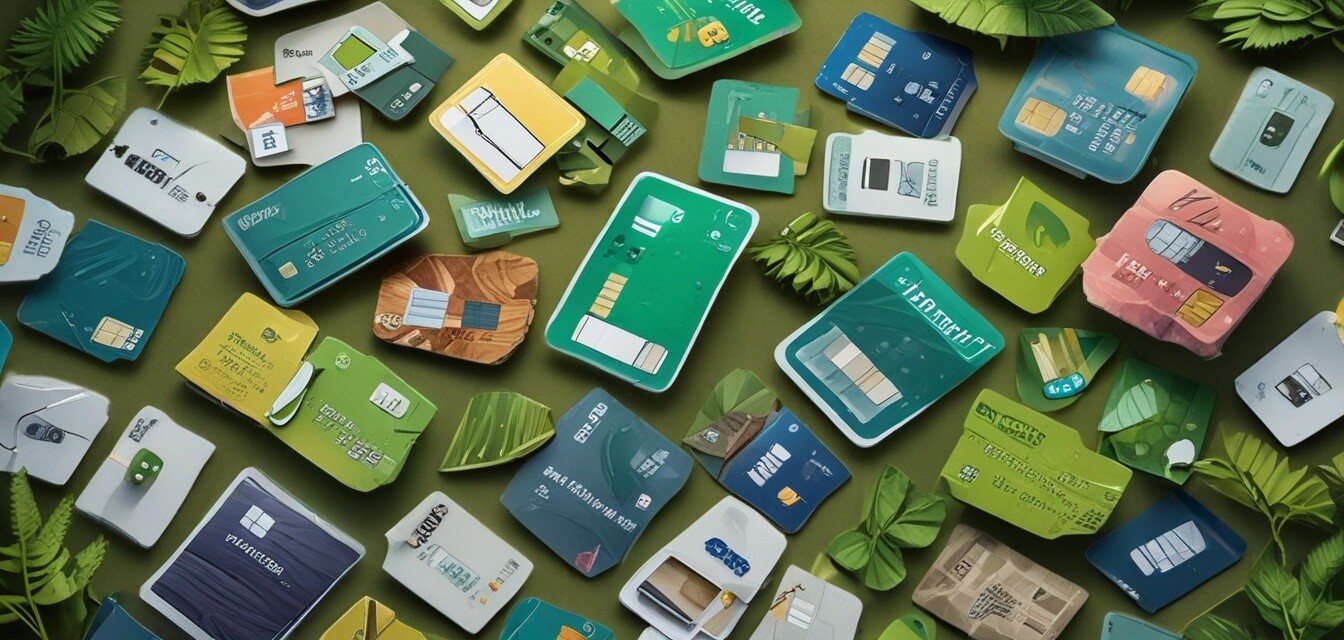
Analyzing the environmental impact of SIM cards
Key Takeaways
- The production of SIM cards involves the use of plastics and metals, which can have numerous environmental repercussions.
- Improper disposal of SIM cards contributes to plastic pollution and electronic waste.
- Travelers can mitigate their environmental impact by choosing sustainable SIM solutions.
- Awareness and education about SIM recycling initiatives are essential for reducing waste.
- Utilizing dual SIM phones can minimize the need for multiple physical cards and their environmental footprint.
As travelers increasingly rely on connectivity, the environmental impact of the devices that facilitate that connectivity becomes more critical. SIM cards, small yet essential, are often overlooked in discussions about sustainability. Here, we will explore the implications of SIM card production and disposal, and provide practical steps travelers can take to address these issues.
The production of SIM cards
SIM cards are made from various materials, including plastic and embedded electronic components. The manufacturing process itself can have a considerable environmental impact. Below is an overview of this process:
| Material | Environmental Impact |
|---|---|
| Plastic | Derived from petroleum, plastic production involves significant resource extraction and contributes to air and water pollution. |
| Metals | Metals like copper and aluminum require mining, which can result in habitat destruction and pollution of nearby water bodies. |
| Chemicals | Manufacturing involves various chemicals that may be harmful to the environment if not properly managed. |
Disposal and environmental consequences
After their intended use, SIM cards often end up in landfills, contributing to the growing problem of plastic pollution. The challenges in recycling such small electronic components include:
- Lack of awareness: Many users are simply unaware of the implications of improper SIM disposal.
- Recycling infrastructure: There may be limited facilities equipped to process SIM cards.
- Electronic waste: SIM cards contribute to the broader issue of electronic waste that is harmful to both the environment and human health.
Travelers' role in reducing impact
As frequent travelers, we have the power to shape industries through our choices. Here are several actions you can take:
Tips for environmentally conscious travelers
- Choose a travel SIM card kit that emphasizes sustainability.
- Opt for eSIM technology when possible, which reduces physical waste.
- Participate in recycling programs, which some mobile providers offer.
- Limit the number of SIM cards you purchase by using dual SIM phones or versatile travel plans.
- Educate others about the importance of SIM card recycling and responsible disposal.
Understanding eSIM technology
The introduction of eSIM technology marks a significant shift in how we manage connectivity. Unlike traditional SIM cards, eSIMs are embedded inside devices and can be reprogrammed, offering numerous benefits:
- Reduced waste: eSIMs eliminate the need for plastic SIM cards.
- Convenience: They allow travelers to change their network without the need for a physical card.
- Less environmental impact: Easier management of plans results in fewer cards produced and discarded.
To learn more about eSIM options, visit our Buying Guides section.
Current trends in SIM sustainability
Experts forecast that sustainability will play a pivotal role in SIM card development in the coming years. Some key trends to watch include:
| Trend | Description |
|---|---|
| Biodegradable materials | Manufacturers are exploring materials that can reduce the environmental footprint. |
| Recycling initiatives | Companies are stepping up efforts to establish SIM recycling programs. |
| Consumer awareness campaigns | More campaigns are educating users on the importance of responsible SIM use and disposal. |
The importance of education
Education plays a vital role in how we as consumers address the environmental impact of our choices. By staying informed on initiatives and understanding how our usage affects the planet, we can make more conscientious decisions. Explore our News and Trends section for the latest updates.
Pros
- Awareness of environmental issues related to SIM cards.
- Access to innovative technologies like eSIMs.
- Increased participation in recycling programs and initiatives.
Cons
- Many consumers remain unaware of SIM card environmental impacts.
- Lack of recycling infrastructure for small electronics.
- Potential limitations of biodegradable material production.
Conclusion
Understanding the environmental impact of SIM cards is crucial for responsible travel and consumption. By utilizing sustainable options and advocating for better practices, we can contribute positively to the environment while staying connected. Let’s take the steps needed to reduce waste and be part of a more sustainable future!